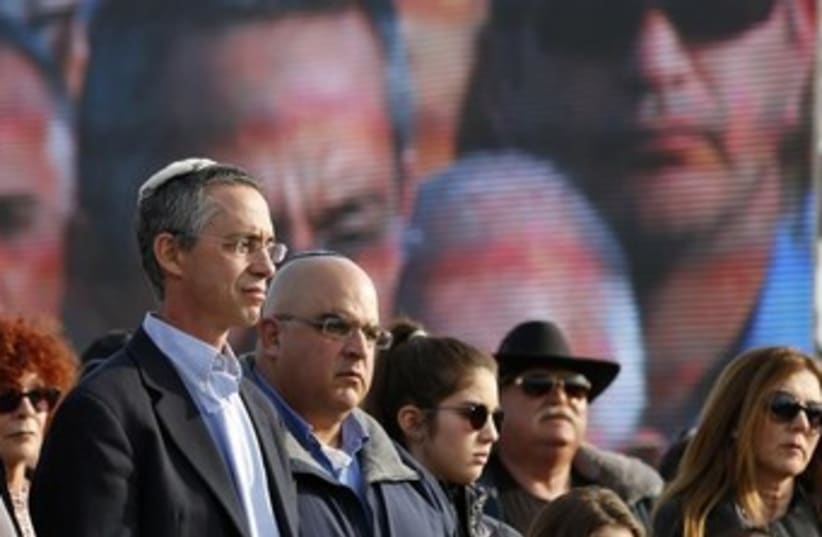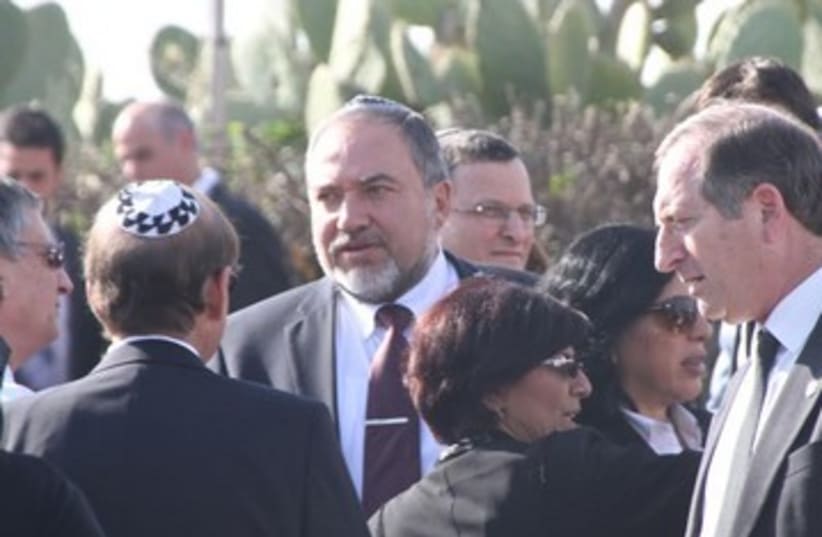
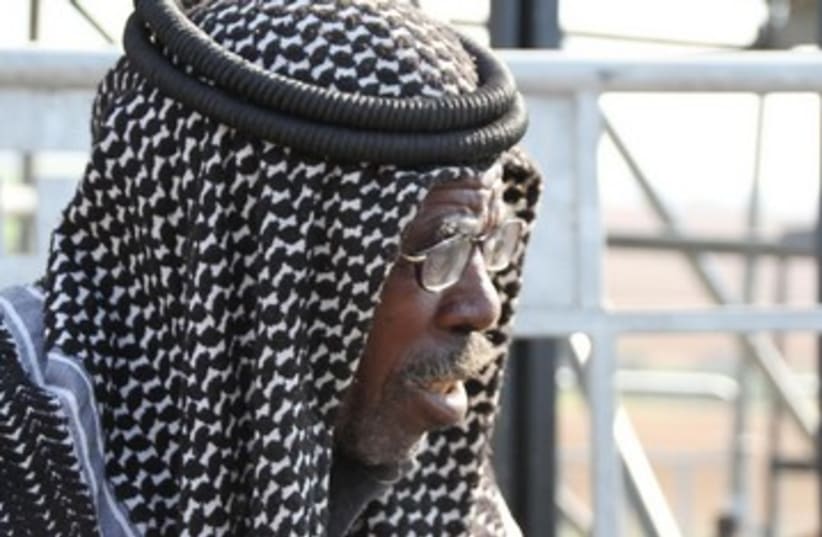
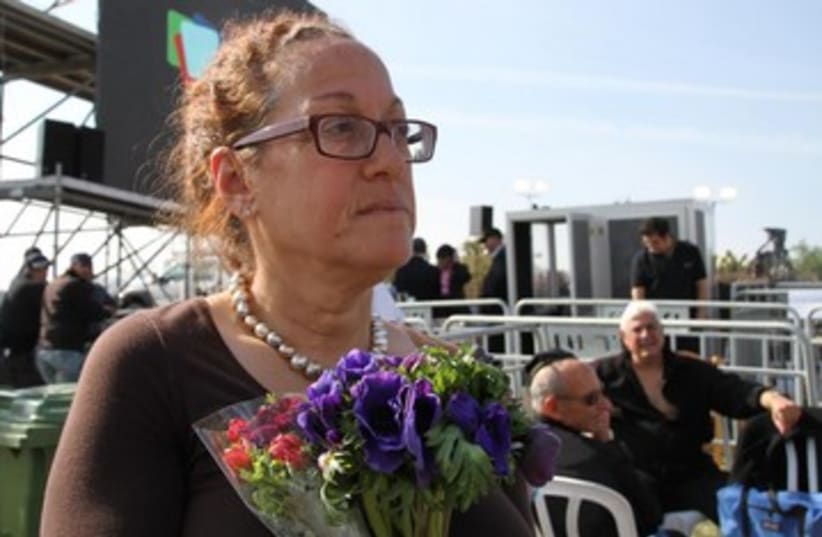
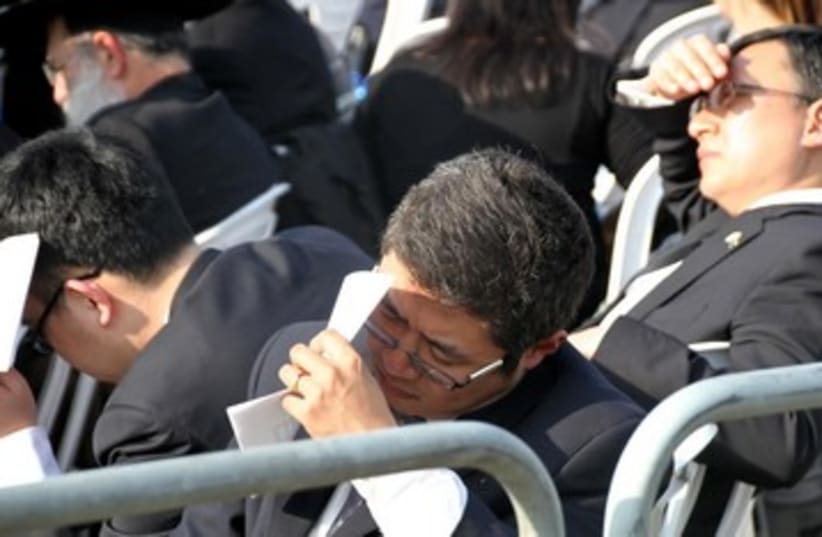
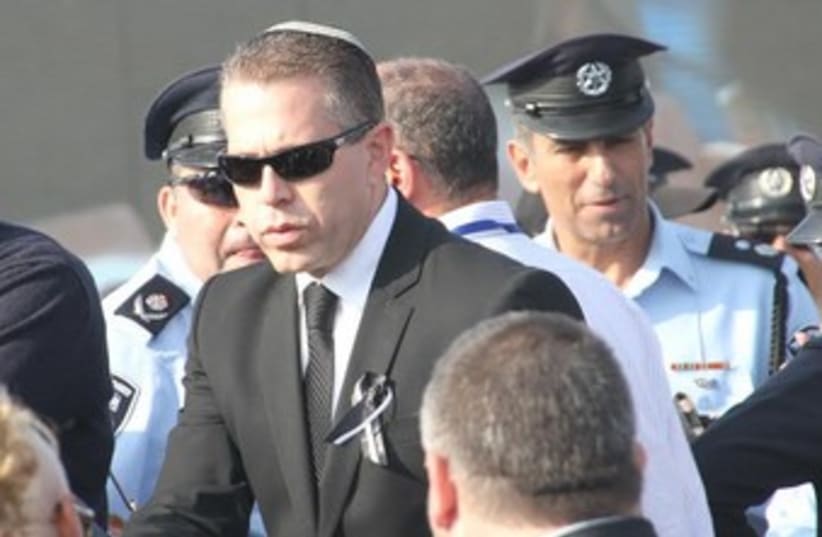
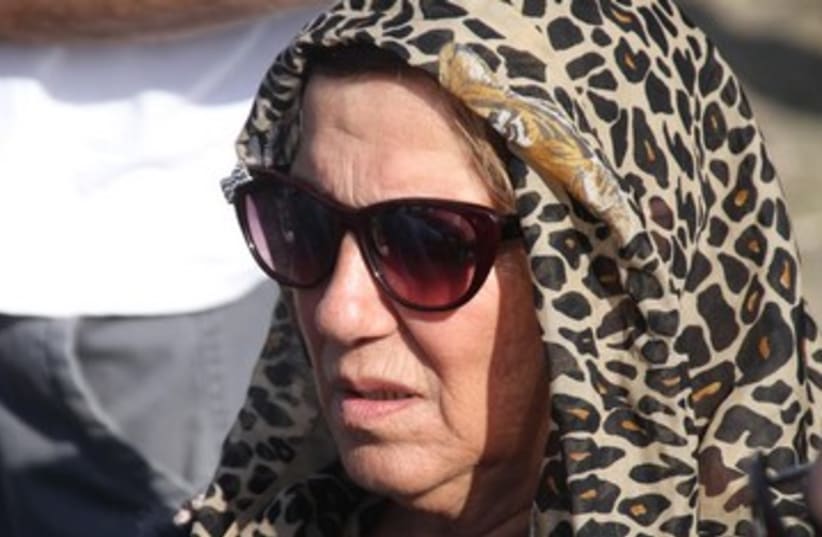
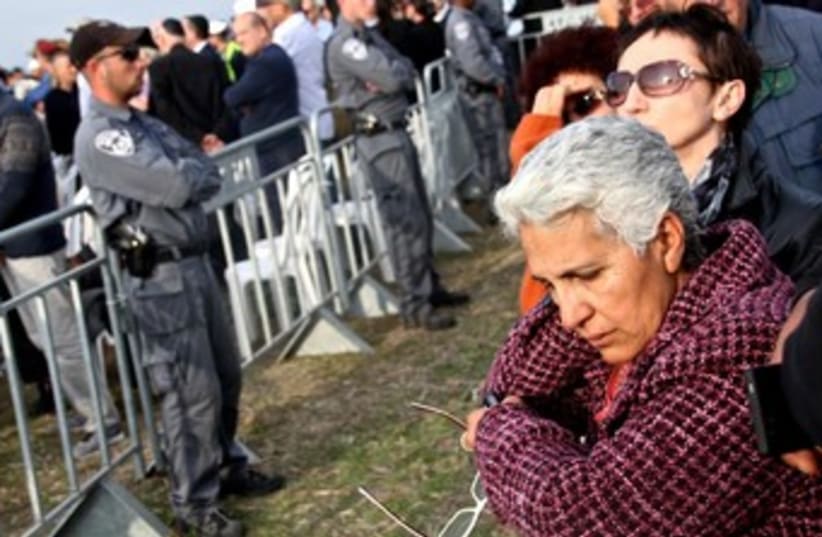
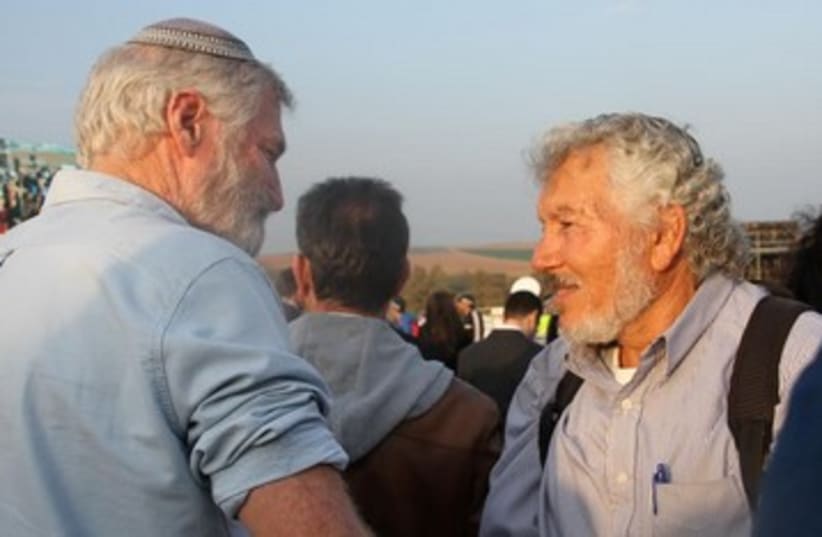
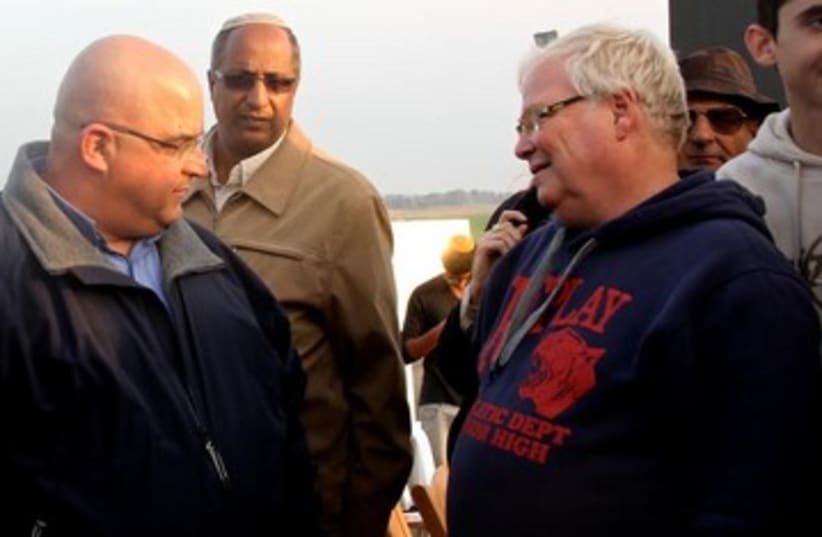
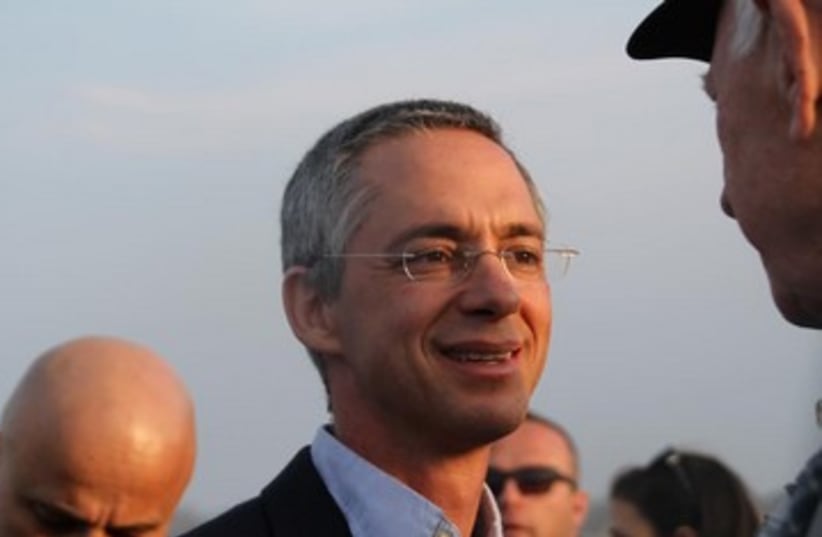

“My beloved father, you have returned home,” said his younger son, Gilad, as he eulogized Sharon in front of Israel’s top leaders and 20 visiting foreign dignitaries, who sat on white plastic chairs under the hot Negev sun.He described his father’s last moments on Saturday at Sheba Hospital in Tel Hashomer, surrounded by family members engaged in lively conversation, while grandchildren ran in and out of the room.“I held your hand and caressed your face, the face of a dying father,” said Gilad, who spoke at the end of three consecutive ceremonies in which the nation bid farewell to its 11th prime minister in the places where he had been most active on behalf of the Jewish people, the state of Israel, and his family.At the Knesset, whose halls he often strode down, Prime Minister Binyamin Netanyahu, President Shimon Peres, and visiting US Vice President Joe Biden lauded Sharon in the morning. At Latrun, where he was gravely wounded as a soldier in the War of Independence, he was honored at midday for becoming one of Israel’s most legendary generals.Then in the afternoon, he was embraced at his farm by those who loved him and knew him best as Ariel, or by his nickname of Arik.“Ariel, that is how I called you for most of my adult life,” said his elder son, Omri.“Look around you, Ariel. Look around you and see how the nation has gathered and clustered on this hill. How they cherish you for protecting them and leading them. How they love you, how they miss you, and how they have bowed their heads. You are worthy of their admiration,” said Omri.For 60 years, Gilad said, his father was a central, active figure at the forefront of significant events that shaped the modern nation of Israel.“There was no field in which you did not make your mark,” said Gilad, “in agriculture, in industry, in construction, in immigration, in foreign relations, and more.”Gilad recalled some of the more tragic and painful moments of Sharon’s life, such as the death in 1967 of his brother, Gur, at age 11, from a bullet accidentally discharged from a gun that Gur and his friend played with on the eve of Rosh Hashanah.“This, without a doubt, was the event that most affected our home. There is nothing as sad as a child’s death and the loss of a life filled with promise,” said Gilad.His brother, Gur, was a special boy with a sense of humor, who already displayed qualities of leadership.“How much pain can a person endure and for what?” asked Gilad, as he described his father’s suffering.What was amazing, said Gilad, is that his father was able to continue with his life, even though the “pain’s intensity” did not diminish over time.Although as the years went on, the intervals by which he felt the pain’s stabbing sensation lengthened, Gilad said.“At least that is how he himself once put it,” Gilad said.He also described the impact of the Latrun battle on his father, who was forced to leave his comrades and friends on the field.The look in their faces accompanied his father throughout his life and made him adamant about not leaving soldiers on the battlefield, said Gilad.As a general and a politician, Gilad said, his father had a history of accomplishing the impossible, as he listed Sharon’s many accomplishments.These achievements, he said, far outweighed any failures.“Even those who have something against you in their hearts, because of the loss of the Gaza settlements, should remember that you built 100 more settlements in Israel than anyone else,” said Gilad.His father excelled at making the impossible possible, Sharon recalled, such as driving a tank battalion through the sand dunes of the Sinai Desert in the 1967 Six Day War and crossing the Suez Canal in the 1973 Yom Kippur War. Similarly, his father quelled terrorism in the 1950s in Gaza and a decade ago in Israel, restoring a calm that has yet to be broken.When hundreds of thousands of immigrants arrived from the former Soviet Union, his father oversaw a massive housing project to ensure that everyone had a roof over their heads, Gilad said.From failed kidneys to military exploits, Gilad said, his father “time and again turned the impossible into reality. This is how legends are made,” and “this is how the ethos of a nation is created.”The only non-family member to eulogize Sharon at the Sycamore Ranch ceremony was IDF Chief of General Staff Benny Gantz, who was one of the last people to speak with Sharon before he suffered a cerebral hemorrhage on the night of January 4, 2006, while serving as prime minister.Gantz said the core of the man he knew as Arik was best summed up by one simple word, “commander.”“You have had many titles over the years. But it seems to me that this one suits you best,” said Gantz.“Although you have been out of uniform for many years, here on the hilltop where the first anemones will soon bloom, we can remember you clearly for the commander that you were.“Today when you returned for the last time to the home that you so loved, columns and generations of fighters have come to salute you for the last time, as your call, ‘Follow me,” continues to echo in their ears,” Gantz said.“I came to salute you today, as the IDF chief of staff, as a soldier, as a paratrooper commander who followed you through various stations, even as insignias no longer decorated your shoulders,” Gantz said.He assured Sharon that the IDF, which was so dear to the former general, would continue in his likeness and image for many years.IDF commanders in the future will be taught to emulate Sharon’s characteristics of initiative, determination, and cool and somber thinking under fire, Gantz said.He recalled how Sharon had once told him that, in moments of despair on the battlefield, it was the look in his men’s eyes that inspired him to push on.Gantz parted from Sharon by referring to him by his IDF identity number, 38166, and saluting.“Rest in peace. We here will continued to march to the sound of your footsteps,” Gantz said. “The land on which you began and based your family, the land which you knew through your feet, for which you fought as a lion in every battle, is the one that gathers you to it now for eternal rest.”
